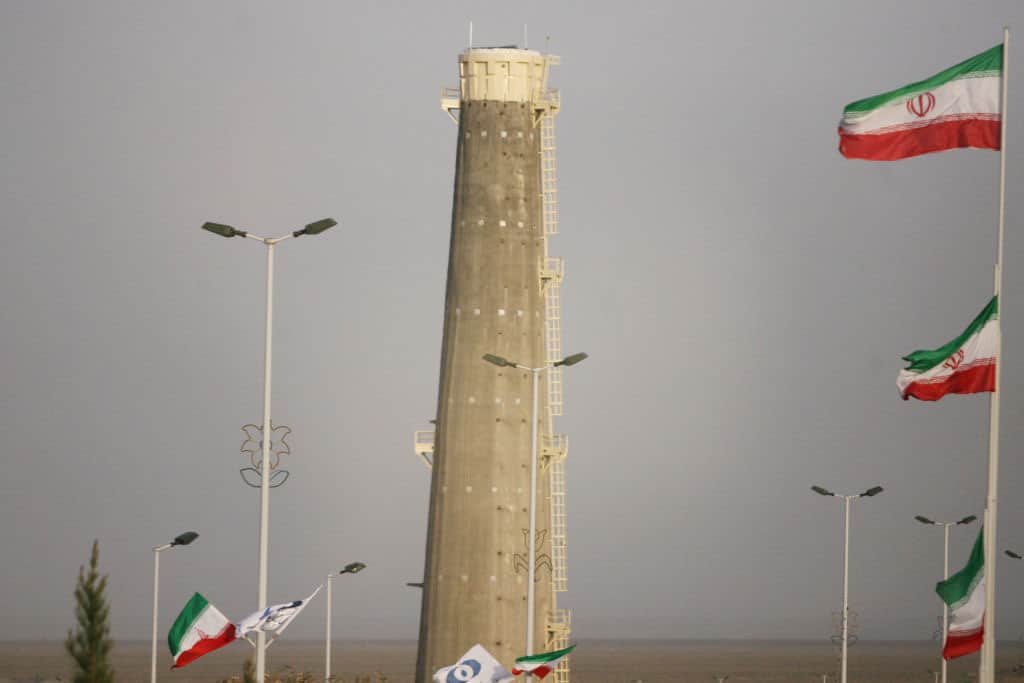
Benjamin Netanyahu has many rhetorical gifts, but playing coy is not one of them. So although Israel’s leaders did not claim credit for the explosion at Iran’s Natanz nuclear site last week, resulting in several months of delay to Iran’s nuclear progress, they certainly did not go out of their way to deny responsibility. Netanyahu’s opponents should grant him the benefit of the doubt that the attack he may or may not have authorized was motivated primarily by the safety of his country and its people. But even his strongest supporters should concede that the political ramifications of the cyber-strike work to his benefit by reinforcing his greatest strength: reminding voters of his commitment to Israel’s security over his years in office.
Any day that COVID-19, the Haredi or Netanyahu’s legal challenges do not dominate the headlines is a good day for the prime minister, and the ongoing international frenzy over Natanz certainly has accomplished that goal. But Bibi has played this particular card many times before, and given that the leaders of the opposition all hold similar views to Netanyahu on Iran-related issues, this distraction is likely not sufficient to help him achieve a governing majority. The most probable outcome of last month’s election is yet another round of voting in the fall. But between now and the time Israeli voters go to the polls yet again, the damage that anonymous perpetrators have inflicted on Natanz will make life much easier for Netanyahu’s successor.
When somebody attacked Natanz last week, the repercussions were so powerful that aftershocks were felt not just in Tehran but more than 2500 miles away in Vienna. The Austrian capitol has been the site of negotiations between Washington and Tehran over Iran’s nuclear capacity, which were proceeding at glacier-like speed even before the cyber-strike took place. Now, there are even more obstacles in the path of a new agreement, which makes most Israelis very happy.
There are even more obstacles in the path of a new agreement, which makes most Israelis very happy.
This delay will be of great benefit to U.S. negotiators, who now have the luxury of patience while their Iranian counterparts continue to procrastinate. The months required for Iran to repair the damage caused at Natanz will not permanently derail Iran’s nuclear ambitions, of course, but they will allow the Biden Administration to feel more comfortable in pressing for additional enhancements to the original deal. For months, Biden and his team have sent mixed messages about the necessity of adding the topics of Iran’s ballistic missile capability and support for terrorist activity to current negotiations. But in the days after the Natanz blackout, one of Biden’s top foreign policy advisors explicitly focused on the importance of addressing these non-nuclear issues at the same time as current negotiations — rather than waiting until the Vienna talks had concluded.
Victoria Nuland, the president’s nominee for undersecretary of state for political affairs, testified last week before the Senate Foreign Relations Committee in her confirmation hearing and pointedly refused to endorse a return to the original Joint Comprehensive Plan of Action (JCPOA) without any changes. Nuland, considered to be one of Biden’s most aggressive and hardline appointees, instead stressed the importance of taking on a wider range of topics.
“I think we’ve got to pursue all of these problems in tandem. Whether that is a question of a comprehensive agreement, I think there are many players and many different pieces of this,” Nuland said. “Walk and chew gum would be my answer.”
That’s not as definitive an answer as the bipartisan group of 43 Senators who signed a bipartisan letter urging a more comprehensive deal would have liked. But in diplomatic-speak, it signals growing comfort on the part of Biden administration to take their time and push for a broader agreement that addresses a full range of potential Iranian threats rather than rushing to reinstate the JCPOA in its previous form. In the aftermath of the attack, Biden administration spokespersons have continued to sound optimistic about the possibility for progress. But it’s still unclear whether there is real motivation beyond the obligatory public statements.
That would suit Israel — and should suit the United States — just fine. A stronger, longer and more wide-ranging treaty is the best and safest way to minimize Iranian bad behavior. The attack on Natanz that someone or other mounted last week gets us closer to that goal.
Dan Schnur teaches political communications at UC Berkeley, USC and Pepperdine. He hosts the weekly webinar “Politics in the Time of Coronavirus” for the Los Angeles World Affairs Council & Town Hall.
Related posts:
Views: 0
 RSS Feed
RSS Feed

















 April 20th, 2021
April 20th, 2021  FAKE NEWS for the Zionist agenda
FAKE NEWS for the Zionist agenda  Posted in
Posted in  Tags:
Tags: 
















